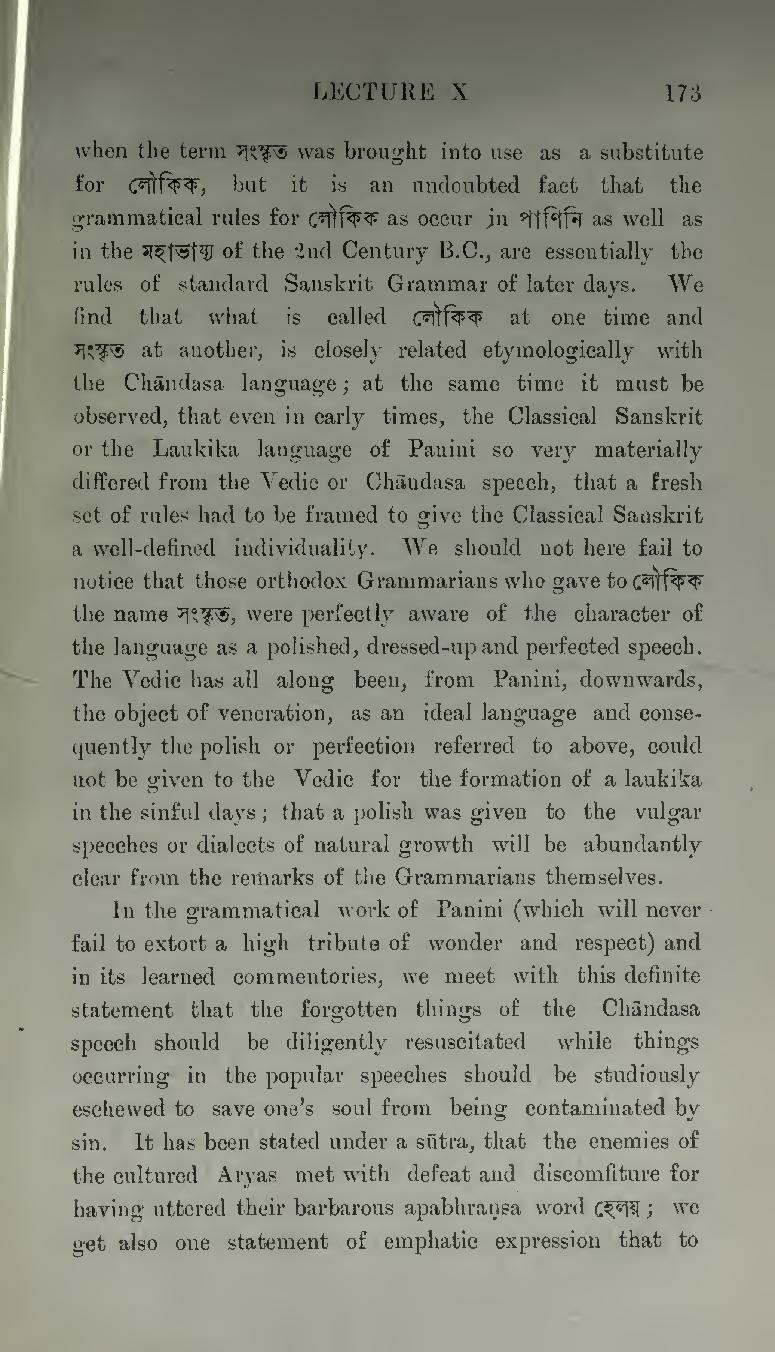when the term সংস্কৃত was brought into use as a substitute for লৌকিক, but it is an undoubted fact that the grammatical rules for লৌকিক as occur in পাণিনি as well as in the মহাভাষ্য of the 2nd Century B.C., are essentially the rules of standard Sanskrit Grammar of later days. We find that what is called লৌকিক at one time and সংস্কৃত at another, is closely related etymologically with the Chāndasa language; at the same time it must be observed, that even in early times, the Classical Sanskrit or the Laukika language of Panini so very materially differed from the Vedic or Chāndasa speech, that a fresh set of rules had to be framed to give the Classical Sanskrit a well-defined individuality. We should not here fail to notice that those orthodox Grammarians who gave to লৌকিক the name সংস্কৃত, were perfectly aware of the character of the language as a polished, dressed-up and perfected speech. The Vedic has all along been, from Panini, downwards, the object of veneration, as an ideal language and consequently the polish or perfection referred to above, could not be given to the Vedic for the formation of a laukika in the sinful days; that a polish was given to the vulgar speeches or dialects of natural growth will be abundantly clear from the remarks of the Grammarians themselves.
In the grammatical work of Panini (which will never fail to extort a high tribute of wonder and respect) and in its learned commentories, we meet with this definite statement that the forgotten things of the Chāndasa speech should be diligently resuscitated while things occurring in the popular speeches should be studiously eschewed to save one's soul from being contaminated by sin. It has been stated under a sūtra, that the enemies of the cultured Aryas met with defeat and discomfiture for having uttered their barbarous apabhraṇsa word হেলয়; we get also one statement of emphatic expression that to
